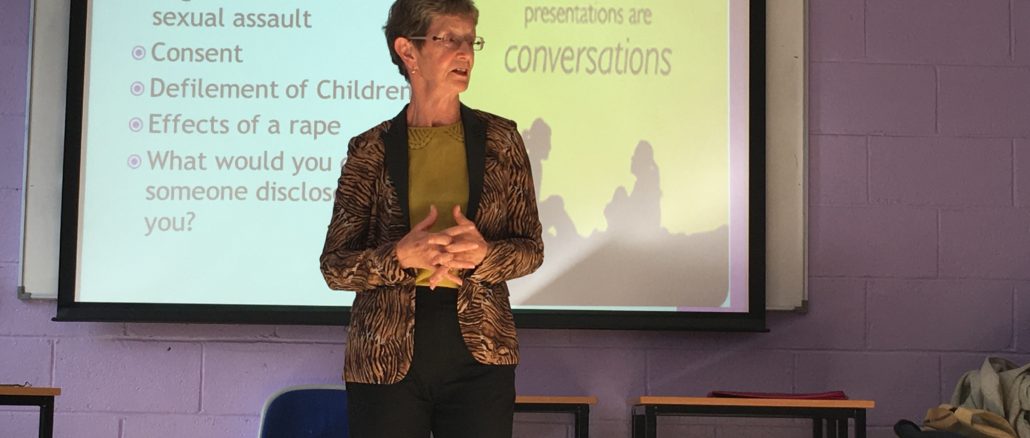
[dropcap]A[/dropcap]lmost a quarter of calls to the Dublin Rape Crisis Centre (DRCC) are made by men, according to Dr Patricia Barker, who spoke to DCU students last Thursday.
Dr. Barker, an employee of the DRCC, was invited to address students by DCU Feminism Society in conjunction with SHIFT week and detailed the work of the organisation, focusing specifically on the issue of consent.
“(Rape) is a crime that’s not talked about, but is a crime that exists,” Barker said.
‘We have this thing, the sexual encounter, which in the normal course of events is happy and pleasurable and fun and then suddenly that same event turns into the second most heinous crime in our state.”
Barker said that the DRCC is now working towards having better clarity in terms of consent, particularly in the law.
“Sex without consent is rape, simple as. Except when you get to court it becomes not so simple and can be very difficult to prove,” she said
Barker’s work with the DRCC has spanned more than thirty years, since the organisation’s inception in the 1970s.
She said that in the centre’s first year of operation they received 170 calls. In their annual report for 2015 which was released last July, the DRCC recorded almost 12,000 calls, with 50 per cent more first time callers than two years previous.
While many callers reported recent incidences of abuse, 49 per cent of callers sought support for childhood sexual abuse. Barker emphasised that a large part of the centre’s work is helping people deal with past trauma.
Of DRCC callers, Barker said that 23 per cent were male and 95 per cent were Irish, with 67 per cent of calls coming from the Dublin area. The report also stated that almost one in three people will be a victim of rape or sexual assault in their lifetime.
Barker said “it’s not that rape has increased, it’s that people are more willing to talk about it and come forward for help”.
She emphasised the importance of students in shaping this attitude. “You are the people who have the capacity to network and to raise awareness,” she said.
Rebecca Lumley
Image: Rebecca Lumley




Leave a Reply